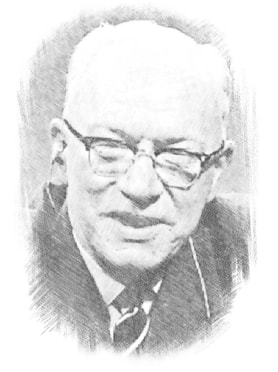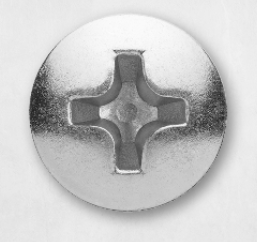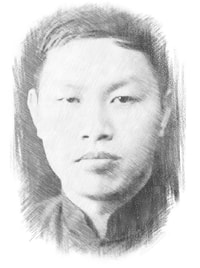Luke 15
|
Luke 15:1-2:
Now the tax collectors and sinners were all gathering around to hear Jesus. 2 But the Pharisees and the teachers of the law muttered, “This man welcomes sinners and eats with them.” |
 Landry Franks Landry Franks
Verses 1 and 2 provide two central characters for this story, the sinners and tax collectors, and the Scribes and Pharisees. The sinners are called this because their sin was public to the community. The Scribes and Pharisees were the cultural elite and believed what your life looked like was far more important than the state of your heart. Jesus’ teaching in Luke 15 is geared toward a heart transformation. He wants us all to see that, whether sinner or Pharisee, we are all broken. The prodigal son is written for the Pharisee to see the pride they harbor in their own works, and because of this they miss the glory of God in salvation. Maybe you feel like your faith is more about your own deeds and not what Christ has done on your behalf. This Easter, repent and trust Christ’s work more than your own. We all need the Gospel, even if we act like we really don’t.
--Landry Franks; Council Road Baptist Church 4.24.19 |
 Thomas Schreiner
Thomas Schreiner
The parable of the lost sheep recounts a story from a man's world (vv. 3–7). If a shepherd loses one sheep out of one hundred, he pursues it until he finds it. Upon finding the lost sheep, "he calls together his friends and his neighbors," summoning them to rejoice with him (v. 6). The earthly joy over finding a lost sheep reflects the joy in heaven over a sinner who repents. Since the Pharisees and scribes were not rejoicing but grumbling over Jesus' table fellowship with sinners, they were not mirroring God's attitude toward those who repent.
-Thomas Schreiner: Ligoniers; Jesus' Mission to the Lost: Luke 15 11.25.12
-Thomas Schreiner: Ligoniers; Jesus' Mission to the Lost: Luke 15 11.25.12
The spirit of man will live on. The question is, will your spirit be united with the Spirit of God or be separated from His Spirit because of your failure to seek a personal relationship with Him? On the other hand, if you do acknowledge that there is life after death, are you obedient enough to make it into the Kingdom of God?
The answer is, no, you are not obedient enough to make it into the Kingdom of God, nor is anyone else. God’s word says that He will not countenance sin. An uncleansed, sinful person will not stand in His midst. No man has ever been perfectly obedient. The Scriptures say that sin is sin and that there is no hierarchy of sin. If you say that you have only stolen something while another person killed someone, you are both in the same place because you have committed a sin for which atonement is required. This is why arrogance and self-righteousness have no place in our lives. We all need to be forgiven for huge sins and small sins. It is very easy to forgive others if you understand what the forgiveness of Christ has done for you. We are never to judge another man’s sin or his salvation. We can observe his actions and see if he bears the kind of fruit he espouses but even then we can not judge the condition of his heart. You can and you should pray for sinners. The salvation of a sinner is a joy to observe. The Scriptures say …there will be more joy in heaven over one sinner who repents than over ninety-nine just persons who need no repentance. Luke 15:7
--Bruce Caldwell; Gospel Global Vision; EPILOGUE: GOT ETERNITY?
The answer is, no, you are not obedient enough to make it into the Kingdom of God, nor is anyone else. God’s word says that He will not countenance sin. An uncleansed, sinful person will not stand in His midst. No man has ever been perfectly obedient. The Scriptures say that sin is sin and that there is no hierarchy of sin. If you say that you have only stolen something while another person killed someone, you are both in the same place because you have committed a sin for which atonement is required. This is why arrogance and self-righteousness have no place in our lives. We all need to be forgiven for huge sins and small sins. It is very easy to forgive others if you understand what the forgiveness of Christ has done for you. We are never to judge another man’s sin or his salvation. We can observe his actions and see if he bears the kind of fruit he espouses but even then we can not judge the condition of his heart. You can and you should pray for sinners. The salvation of a sinner is a joy to observe. The Scriptures say …there will be more joy in heaven over one sinner who repents than over ninety-nine just persons who need no repentance. Luke 15:7
--Bruce Caldwell; Gospel Global Vision; EPILOGUE: GOT ETERNITY?
 Charles L Allen
Charles L Allen
"Why do people leave God out of their lives? It isn't because one is an atheist who does not believe. We can believe in God's existence and still ignore Him. Men do not leave God because they do not feel that they need Him. They leave God because they do not feel they need Him. They have resources sufficient; they can make their own laws and decide their own roads to travel. The prodigal is not necessarily one who wants to do wrong. The prodigal is one who feels sufficient with his own resources. --Charles L Allen; When The Heart is Angry; 1955
 Robert Farrar Capon
Robert Farrar Capon
The Parable of the Lost Sheep is not about the lost sheep. All the sheep ever did was get lost. The parable is about the passion of the shepherd who lost the sheep to find the sheep. His passion to find is what drives the parable; and consequently it isn’t the Prodigal’s lostness, wasting all his money on wine, women and song in the far country; and it isn’t the elder brother’s grousing and complaining and score keeping that stands against him. What counts in the parable is the father’s unceasing desire to find the sons he lost—both of them—and to raise both of them up from the dead.The story, of course, you know. The story begins with the father having two sons and the youngest son comes to the father and says, “Father, divide the inheritance between me and my brother.” What he’s in effect saying is, “Dear Dad, drop dead now, legally. Put your will into effect and just retire out of the whole business of being anything to anybody and let us have what is coming to us.” So the youngest son gets the money and the older brother gets the farm. And off the younger brother goes. What he does, of course, is he spends it all—blows it all—on wild living. When he finally is in want and working, slopping hogs for a farmer and wishing that he could eat what he’s feeding the pigs, he can’t stand it. When he finally comes to himself he says, “You know, I’ve got to do something. How many hired servants of my father’s are there who have bread enough to spare and I’m perishing here with hunger? I know what I’m going to do.”
Almost every preacher makes this the boy’s repentance. It’s not his repentance. This is just one more dumb plan for his life. He says, “I will go to my father and I will say, ‘Father, I’ve sinned against heaven and before you.'” That’s true. He got that one right. “And I’m no longer worthy to be called your son.” Score two. He gets that one right. But the next thing he says is dead wrong. He says, “Make me one of your hired servants.” He knows—he thinks he knows—he can’t go back as a dead son, and therefore he says, “I will now go back as somebody who can earn my father’s favor again. I will be a good worker or whatever.” This is not a real repentance, it’s just a plan for a life. What it is, is enough to get him started going home, and consequently when he goes home, what happens next is an absolutely fascinating kind of thing.
What happens next is that the father (you must remember this) is now sitting on the front porch of the farm house. The farm house doesn’t belong to him anymore. The front porch doesn’t belong to him. He’s sitting in the rocker that belongs to his oldest son who is now, you know, the owner of the farm. He’s sitting there and he sees the Prodigal, the younger boy, coming down the road from far away. He sees him coming. What does he do? He rushes off the porch, runs a half mile down the road, throws his arms around the boy’s neck and kisses him.
Now, this is all that Jesus does with this scene. The fascinating thing in this parable is that in the whole parable the father never says one single word to the Prodigal Son. Jesus makes the embrace, the kiss, do the whole story of saying, “I have found my son.” The fascinating thing also is that when the father embraces the boy who has come home from wasting his life, the boy never gets his confession out of his mouth until after the kiss, until after the embrace. What this says to you and me who have to live with the business of trying to confess our sins is that confession is not a pre-condition of forgiveness. It’s something that you do after you know you have been forgiven. Confession is not something you do in order to get forgiveness. It’s something you do in order to celebrate the forgiveness you got for nothing. Nobody can earn forgiveness. The Prodigal knows he’s a dead son. He can’t come home as a son, and yet in his father’s arms he rises from the dead and then he is able to come to his father’s side. --Robert Farrar Capon
Almost every preacher makes this the boy’s repentance. It’s not his repentance. This is just one more dumb plan for his life. He says, “I will go to my father and I will say, ‘Father, I’ve sinned against heaven and before you.'” That’s true. He got that one right. “And I’m no longer worthy to be called your son.” Score two. He gets that one right. But the next thing he says is dead wrong. He says, “Make me one of your hired servants.” He knows—he thinks he knows—he can’t go back as a dead son, and therefore he says, “I will now go back as somebody who can earn my father’s favor again. I will be a good worker or whatever.” This is not a real repentance, it’s just a plan for a life. What it is, is enough to get him started going home, and consequently when he goes home, what happens next is an absolutely fascinating kind of thing.
What happens next is that the father (you must remember this) is now sitting on the front porch of the farm house. The farm house doesn’t belong to him anymore. The front porch doesn’t belong to him. He’s sitting in the rocker that belongs to his oldest son who is now, you know, the owner of the farm. He’s sitting there and he sees the Prodigal, the younger boy, coming down the road from far away. He sees him coming. What does he do? He rushes off the porch, runs a half mile down the road, throws his arms around the boy’s neck and kisses him.
Now, this is all that Jesus does with this scene. The fascinating thing in this parable is that in the whole parable the father never says one single word to the Prodigal Son. Jesus makes the embrace, the kiss, do the whole story of saying, “I have found my son.” The fascinating thing also is that when the father embraces the boy who has come home from wasting his life, the boy never gets his confession out of his mouth until after the kiss, until after the embrace. What this says to you and me who have to live with the business of trying to confess our sins is that confession is not a pre-condition of forgiveness. It’s something that you do after you know you have been forgiven. Confession is not something you do in order to get forgiveness. It’s something you do in order to celebrate the forgiveness you got for nothing. Nobody can earn forgiveness. The Prodigal knows he’s a dead son. He can’t come home as a son, and yet in his father’s arms he rises from the dead and then he is able to come to his father’s side. --Robert Farrar Capon

One of my favorite authors, Father Robert Farrar Capon, in his book Kingdom, Grace, and Judgment: Paradox, Vindication and Outrage in the Parables of Jesus calls this parable a “festival of death.” I love that! And he is right … pretty much everybody, with the exception of the eldest son, dies … at least metaphorically. It is a parable where the youngest son acts in a shameful way by telling his father to drop dead by giving him his share of the inheritance – and amazingly the father does just that. He divides the wealth between his sons: youngest son getting one third and the eldest getting the two-thirds double portion which was first century Palestine’s version of social security – eldest son would now take care of dad in his dotage. But in essence, the father ceases to be the pater familias – he is no longer in charge, he has dropped dead. The younger son goes off and “squandered his wealth in a wild lifestyle.” The Greek says he “scattered his substance” on a “riotous life.” In essence, he blew it all … and then some. It wasn’t just the money … it was his whole substance. In addiction parlance, we might say he was heading for rock bottom. And then a famine came and he had to take a job … feeding the … pigs! How low can a nice Jewish boy go? Evidently, just a bit lower because looking at hog slop and thinking, “That looks good!” is probably slightly worse. So he has figured out that living life on his terms is over - he's dead. He devises a way to go home by saying, “Father, I have sinned against heaven and before you; I am no longer worthy to be called your son; treat me like one of your hired hands.” It may sound like he’s still trying to eke out some shred of dignity with that last contrivance of being a hired hand. But I think there is another dynamic at work. Adding that little phrase on to the end gives his father a face saving way of taking him back. Let’s face it, he shamed the old man and the son knows it. He’s giving dad a way to take him back and recover his dignity. He's actually thinking of his father's well-being - getting out of his own selfish head for once. But we know the father’s dignity doesn't matter – he’s dead, remember? When you've died, you don’t worry about saving face. So when this son comes home his father runs to meet him, kisses him and the son gets out, “Father, I have sinned against heaven and before you; I am no longer worthy to be called your son.” That’s it … game over. There’s the unvarnished truth – he’s dead and he knows it. Now grace steps in. His father clothes him in a fine robe, puts a ring on his finger, sandals on his feet and kills the fatted calf for a party.
But then … queue the ominous music … the older brother shows up. Yes, Captain Buzzkill has reported for duty! He’s not dead yet. He’s still in the merit badge business of keeping score. He throws a hissy fit and complains to his father that he’s worked hard, played by the rules and never had a party … “But when this son of yours came back, who has devoured your property with prostitutes, you killed the fatted calf for him!”
Freeze frame … hold it right there … let’s admit it … we totally get the older brother. It doesn't matter how prodigal we may have been in our lives, we still see the inherent unfairness of this, don’t we? But the point of the parable isn't fairness – it’s about grace and grace is NEVER, EVER fair. Grace is … that’s all. Grace just is and we never, ever earn it. The older brother thinks we do, and sometimes we think we do … and the Pharisees overhearing this story definitely think we do … but that’s not how it works. What works is being a loser and dropping dead. God can work with that because it gets us and our small, finite, dead egos out of the way.
--Grace Bunswick; Lost sheep, lost coins, lost sons and lost scruples - Proper 20C 9.23.13
But then … queue the ominous music … the older brother shows up. Yes, Captain Buzzkill has reported for duty! He’s not dead yet. He’s still in the merit badge business of keeping score. He throws a hissy fit and complains to his father that he’s worked hard, played by the rules and never had a party … “But when this son of yours came back, who has devoured your property with prostitutes, you killed the fatted calf for him!”
Freeze frame … hold it right there … let’s admit it … we totally get the older brother. It doesn't matter how prodigal we may have been in our lives, we still see the inherent unfairness of this, don’t we? But the point of the parable isn't fairness – it’s about grace and grace is NEVER, EVER fair. Grace is … that’s all. Grace just is and we never, ever earn it. The older brother thinks we do, and sometimes we think we do … and the Pharisees overhearing this story definitely think we do … but that’s not how it works. What works is being a loser and dropping dead. God can work with that because it gets us and our small, finite, dead egos out of the way.
--Grace Bunswick; Lost sheep, lost coins, lost sons and lost scruples - Proper 20C 9.23.13
 Charles L Allen
Charles L Allen
"When the Prodigal Son comes to himself, he says, "I will arise and go to my father." In his situation, some people say "I will turn over a new leaf. I will do better." Some say, "I will become active in the church. I will make my life count for more." Those things are good but not good enough. That boy realizes he does not have the strength within himself. And blessed is that person who will settle for nothing less than the Father."
--Charles L Allen; When The Heart is Angry; 1955
--Charles L Allen; When The Heart is Angry; 1955
 William Barclay
William Barclay
Let us stop there and see the truth so far in this parable.
(i) It should never have been called the parable of the Prodigal Son, for the son is not the hero. It should be called the parable of the Loving Father, for it tells us rather about a father's love than a son's sin.
(ii) It tells us much about the forgiveness of God. The father must have been waiting and watching for the son to come home, for he saw him a long way off. When he came, he forgave him with no recriminations. There is a way of forgiving, when forgiveness is conferred as a favour. It is even worse, when someone is forgiven, but always by hint and by word and by threat his sin is held over him.
Once Lincoln was asked how he was going to treat the rebellious southerners when they had finally been defeated and had returned to the Union of the United States. The questioner expected that Lincoln would take a dire vengeance, but he answered, "I will treat them as if they had never been away."
It is the wonder of the love of God that he treats us like that.
That is not the end of the story. There enters the elder brother who was actually sorry that his brother had come home. He stands for the self-righteous Pharisees who would rather see a sinner destroyed than saved. Certain things stand out about him.
(i) His attitude shows that his years of obedience to his father had been years of grim duty and not of loving service.
(ii) His attitude is one of utter lack of sympathy. He refers to the prodigal, not as any brother, but as your son. He was the kind of self-righteous character who would cheerfully have kicked a man farther into the gutter when he was already down.
(iii) He had a peculiarly nasty mind. There is no mention of harlots until he mentions them. He, no doubt, suspected his brother of the sins he himself would have liked to commit.
Once again we have the amazing truth that it is easier to confess to God than it is to many a man; that God is more merciful in his judgments than many an orthodox man; that the love of God is far broader than the love of man; and that God can forgive when men refuse to forgive. In face of a love like that we cannot be other than lost in wonder, love and praise. --William Barclay
(i) It should never have been called the parable of the Prodigal Son, for the son is not the hero. It should be called the parable of the Loving Father, for it tells us rather about a father's love than a son's sin.
(ii) It tells us much about the forgiveness of God. The father must have been waiting and watching for the son to come home, for he saw him a long way off. When he came, he forgave him with no recriminations. There is a way of forgiving, when forgiveness is conferred as a favour. It is even worse, when someone is forgiven, but always by hint and by word and by threat his sin is held over him.
Once Lincoln was asked how he was going to treat the rebellious southerners when they had finally been defeated and had returned to the Union of the United States. The questioner expected that Lincoln would take a dire vengeance, but he answered, "I will treat them as if they had never been away."
It is the wonder of the love of God that he treats us like that.
That is not the end of the story. There enters the elder brother who was actually sorry that his brother had come home. He stands for the self-righteous Pharisees who would rather see a sinner destroyed than saved. Certain things stand out about him.
(i) His attitude shows that his years of obedience to his father had been years of grim duty and not of loving service.
(ii) His attitude is one of utter lack of sympathy. He refers to the prodigal, not as any brother, but as your son. He was the kind of self-righteous character who would cheerfully have kicked a man farther into the gutter when he was already down.
(iii) He had a peculiarly nasty mind. There is no mention of harlots until he mentions them. He, no doubt, suspected his brother of the sins he himself would have liked to commit.
Once again we have the amazing truth that it is easier to confess to God than it is to many a man; that God is more merciful in his judgments than many an orthodox man; that the love of God is far broader than the love of man; and that God can forgive when men refuse to forgive. In face of a love like that we cannot be other than lost in wonder, love and praise. --William Barclay





